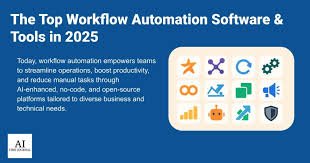Software as a Service (SaaS) has transformed how we use technology. Instead of bulky installations and expensive licenses, SaaS offers cloud-based solutions you can access anywhere, update constantly, and scale instantly. But among the flood of tools, one name has quietly revolutionized modern productivity: Notion.
Part workspace, part wiki, part project management tool, Notion has captured the imagination of startups, solopreneurs, educators, and enterprise teams alike. It’s sleek, endlessly customizable, and built for the way people want to work now—flexible, collaborative, and fast.
Here’s a deep dive into how Notion became a SaaS success story, and what it says about the future of work.
Why SaaS (and Notion) Matter Now
Businesses in 2025 demand tools that can do more with less. With hybrid work, remote teams, and constant tech churn, flexibility is currency. SaaS platforms like Notion thrive because they:
-
Work across devices instantly
-
Offer continuous updates with no installs
-
Allow collaboration in real-time
-
Cost less upfront than traditional enterprise software
And Notion fits that mold perfectly—with a twist: it doesn’t force structure. It adapts to you.
3 Challenges Modern Teams Face (That Notion Solves)
1. Tool Overload
Most teams juggle 5–10 different apps—one for docs, one for tasks, one for knowledge sharing, another for meetings. This creates friction, lost info, and context switching.
2. Scattered Knowledge
Important notes, SOPs, meeting agendas, and ideas live in different places. When someone leaves, their knowledge often leaves with them.
3. One-Size-Fits-All Software
Traditional project management tools are rigid. You have to fit their system. If your workflow doesn’t match, you end up frustrated or abandoning the tool.
5 Reasons Notion Has Become a SaaS Standout
1. All-in-One Workspace
Notion combines documents, databases, calendars, kanban boards, wikis, and task management into a single interface. This lets teams replace apps like Google Docs, Trello, and Confluence with one unified tool.
Example:
A marketing team can:
-
Plan campaigns on a calendar
-
Track assets in a database
-
Document strategies in a living team wiki
-
Assign tasks via Kanban—all within one workspace
2. Extreme Customization
Notion is a blank canvas. Want a CRM? A habit tracker? A design review pipeline? You can build it from scratch or use pre-made templates.
Pro Tip from workflow expert Jason Yi:
“The beauty of Notion isn’t what it does out of the box—it’s what it lets you build. It feels less like a product, more like a platform.”
3. Real-Time Collaboration
Multiple users can edit the same doc, leave comments, mention teammates, and track updates—just like Google Docs, but more integrated.
Stat:
Notion reports that teams using its collaborative features are 34% faster in project turnaround than those relying on disconnected tools.
4. Knowledge Management for the Long Game
Notion shines as a company wiki. You can store SOPs, onboarding docs, brand guidelines, and historical decisions in one place—searchable and organized.
This reduces dependency on individuals and makes scaling easier.
5. Scalable Pricing for Any Size Team
Notion is free for individuals and offers tiered plans for teams and enterprises. Unlike traditional enterprise software, you only pay for what you use—no massive contracts or overhead.
Deep Dive: How a Startup Used Notion to Scale from 5 to 50
Case Study: Radish Labs, a creative agency based in NYC, switched to Notion after struggling with Slack threads, Google Docs, and spreadsheets.
Their setup:
-
A Notion dashboard for every client
-
A project tracker board with stages, owners, deadlines
-
A content calendar linked to production assets
-
A centralized knowledge base for internal processes
After 3 months:
-
Onboarding time for new hires dropped by 40%
-
Project handoffs became seamless
-
Client satisfaction scores rose due to fewer delays
“We don’t waste time searching for info anymore. Notion became our second brain.”
– Natalie Cheung, COO at Radish Labs
3 Steps to Get Started With Notion Today
1. Create a Free Account and Explore Templates
Visit notion.so and explore its template gallery. Try one for task management, note-taking, or project planning.
2. Set Up a Team Workspace
Invite your team, assign roles, and create a shared dashboard. Start with simple pages and expand as needed.
3. Watch 1–2 Beginner Tutorials
Notion’s flexibility can be overwhelming. Watch quick-start videos on YouTube or Notion Academy to build confidence and avoid the blank-page freeze.
Conclusion
Notion isn’t just a trendy SaaS—it’s a tool that reflects where work is headed: modular, collaborative, and deeply customizable.
If you’re tired of bouncing between tools, drowning in documents, or losing team knowledge, Notion might just be the operating system your workflow needs.
Whether you’re managing a startup, building a personal brand, or running a growing enterprise, this one platform can adapt to your brain—and bring order to your chaos.



